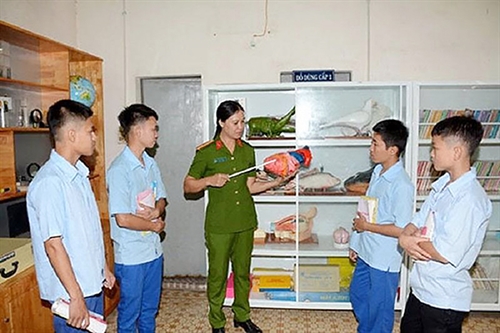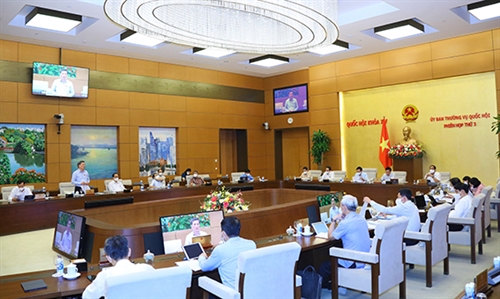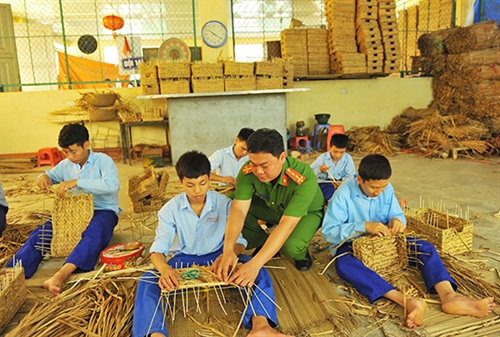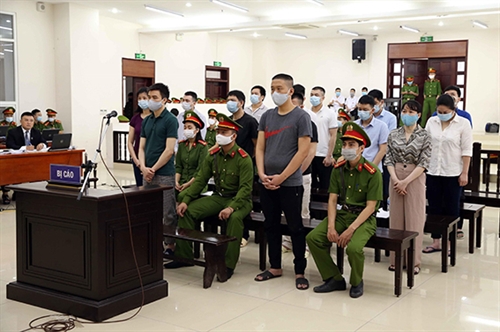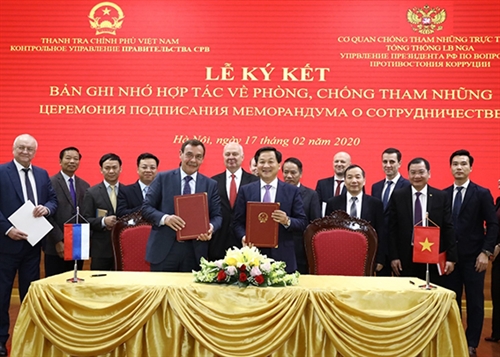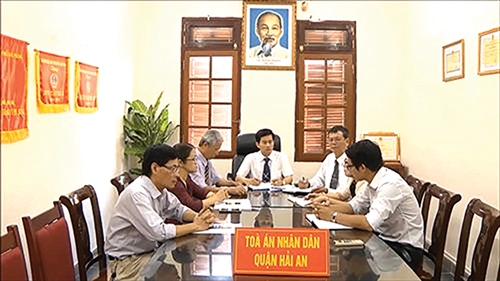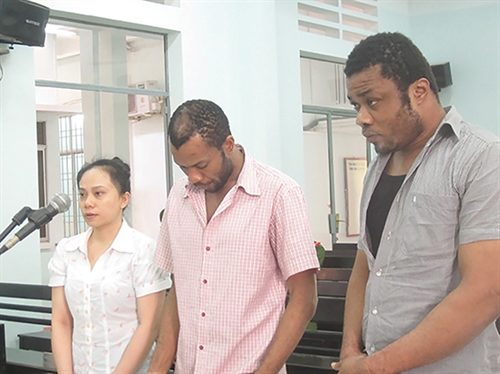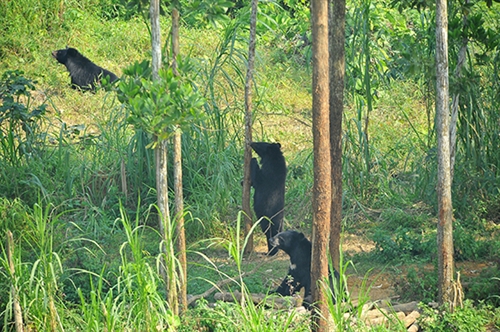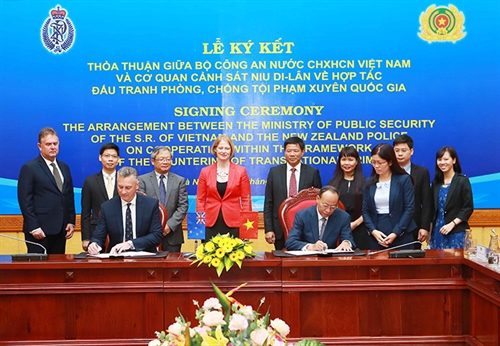Nguyen Van Nghia, LL.D.
General Department of Civil Judgment Enforcement
Ministry of Justice
Overview
In the context of extensive international integration, besides diplomatic missions and consular offices as key parties to diplomatic relations, the State, state agencies, companies, state enterprises, sole proprietorships, multinational corporations, etc., will be involved more and more actively in economic, civil and commercial transactions overseas. Therefore, civil, economic and commercial disputes involving foreign elements will inevitably occur and need to be settled by competent authorities with proper jurisdiction. In principle, their rulings or awards are to be respected and executed, except cases eligible for immunity from execution under international and domestic laws. Many economic and commercial cases involving the aforesaid subjects have recently been recorded in Vietnam in the field of private international law. However, the execution of court judgments and rulings for these cases has encountered not a few difficulties and problems, especially those caused by legal institutions. This article provides an overview of Vietnamese laws as well as international regulations on immunity from measures to enforce court judgments and rulings.
Vietnam’s legal framework on immunity from court judgment enforcement
The country’s first legal instrument providing immunity from coercive measures to enforce court judgments and rulings is the 1993 Ordinance on Immunities and Privileges for Diplomatic Missions, Consular Offices and Representative Offices of International Organizations in Vietnam (the Ordinance). Under its Articles 1 and 17.1, foreign diplomatic missions and consular offices, representative offices of international organizations in Vietnam and members of such missions or offices and their family members are entitled to diplomatic immunities and privileges. These immunities and privileges aim to create favorable conditions for such missions or offices and their staff members to effectively perform their official functions and tasks in the capacity as Vietnam-based foreign representations. Major immunities in the diplomatic field include:
Firstly, immunity from the application of measures to enforce court judgments with regard to working offices of diplomatic missions and assets therein, including also vehicles. Article 4.1.b of the Ordinance defines working offices of diplomatic missions as buildings or parts thereof and appurtenant land areas used for official purposes of those missions, including also domiciles of mission heads. Working offices of diplomatic missions are impregnable. Vietnamese authorities may only enter those offices with consent of mission heads or their authorized persons. Such offices and assets therein, including also vehicles, cannot be searched, requisitioned, confiscated or subject to judgment enforcement measures[2]. These provisions mean that civil judgment execution officers may not apply judgment enforcement measures, including account freezing; taking into custody of assets and documents; suspension of registration, movement or change of status of assets[3], against such offices and assets therein.
Secondly, diplomats are entitled to immunity from judgment enforcement measures, unless they are involved in their personal capacity in disputes related to real estate located in Vietnam’s territory, inheritance, commercial or professional activities in Vietnam beyond the ambit of their official functions. In case of necessity to take judgment enforcement measures, respect for body and domicile inviolability of diplomats must be ensured.
The Ordinance does not specify which judgment enforcement measures are, and the 2014 Law Revising a Number of Articles of the Law on Civil Judgment Enforcement no longer uses the term of judgment enforcement measures in a general fashion as seen in previous legal documents on civil judgment execution. However, judgment enforcement measures can be understood as all procedures and steps for civil judgment execution specified by the law on civil judgment execution. In the course of application of judgment enforcement measures to diplomats, nevertheless, special attention should be paid to respecting their body and domicile inviolability in accordance with the Constitution, Civil Code, Law on Residence, other relevant regulations of Vietnam, and relevant international legal instruments.
Thirdly, the waiver of immunity from civil trial or administrative sanctioning by diplomats and persons referred to in Article 17 of the Ordinance[4] does not cover waiver of immunity from judgment enforcement measures and administrative sanctioning decisions.
As per the Ordinance, it is necessary to distinguish between immunity from civil trial or administrative sanctioning and immunity from judgment enforcement measures. Accordingly, waiver of immunity from civil trial does not mean waiver of immunity from judgment enforcement measures, and waiver of immunity from judgment enforcement measures and administrative sanctioning decisions should be explicitly and separately expressed.
However, the current law on civil judgment execution as well as other relevant laws make no specific and explicit provisions on waiver of immunity from judgment enforcement measures, e.g., forms, contents, competence, time limit and legal consequences, etc., of the waiver.
Fourthly, Article 30.3 of the Ordinance provides that waiver of immunity from civil trial and administrative sanctioning by consuls and consular staffs under Article 28 of the Ordinance[5] does not cover waiver of immunity from judgment enforcement measures and administrative sanctioning decisions, and waiver of immunity from judgment enforcement measures and administrative sanctioning decisions should be explicitly and separately expressed.
From the above analyses, it is noted that the Ordinance only provides immunity from judgment enforcement measures for Vietnam-based foreign diplomatic missions and consular offices and representative offices of international organizations and their staffs as well as their family members when performing their official functions and tasks in the capacity as representations in Vietnam. In other words, the scope of and categories of persons entitled to immunity from judgment enforcement measures are narrow, just limited to diplomatic and consular personnel.
In addition, the Ordinance and guiding Government Decree 73-CP dated July 30, 1994, both contain no provisions specifying judgment enforcement measures from which diplomatic and consular personnel are immune and do not refer to any relevant provisions of the law on civil judgment execution. Legal terminology used in the Ordinance and relevant provisions of the law on civil judgment execution also remains inconsistent[6].
Provisions of Vietnam’s civil procedure law regarding immunity from judgment enforcement measures remain insufficient and inconsistent. For example, Article 86 of the Ordinance on implementation of provisions on civil proceedings in treaties on mutual judicial and legal assistance stipulates: “For matters related to citizens and legal persons of countries with which the Socialist Republic of Vietnam has concluded treaties or agreements on justice and legal matters, civil proceedings shall be carried out under such treaties or agreements.” At that time, as the only legal instrument providing immunity granted by foreign states in international civil proceedings, the Ordinance itself remained silent about immunity from judgment enforcement measures. Until the promulgation of the 2015 Civil Procedure Code and the 2015 Civil Code, no legal texts else provided or recognized judicial immunity of foreign states in Vietnam, even the 2004 Civil Procedure Code.
To address the above inadequacies, the 2015 Civil Procedure Code adds many provisions concerning privileges and immunities of Vietnam-based foreign agencies and organizations and international organizations and their representative offices. For example, Articles 2.3 and 2.4 of this Code stipulate:
“3. The Civil Procedure Code shall apply to the settlement of civil cases and matters involving foreign elements; in case a treaty to which the Socialist Republic of Vietnam is a contracting member otherwise provides, the provisions of such treaty shall prevail.
4. For foreign agencies, organizations and individuals that are entitled to diplomatic or consular privileges and immunities under Vietnam’s laws or under treaties to which the Socialist Republic of Vietnam is a contracting party, civil cases and matters involving such agencies, organizations and individuals shall be settled through diplomatic channels.”
Article 467.2 of this Code also provides: “2. The civil procedure law capacity of an international organization or representative agency of an international organization shall be determined on the basis of the treaty serving the establishment of such organization, the international organization’s operation regulations, or a treaty to which the Socialist Republic of Vietnam is a contracting party.
In case an international organization announces to renounce its privileges and immunities, the civil procedure law capacity of such organization shall be determined in accordance with Vietnam’s law.”
Particularly, Article 472.1.dd of this Code requires Vietnamese courts to reject lawsuit petitions or written requests or suspend the settlement of civil cases or matters involving foreign elements if defendants are entitled to judicial immunity, although such civil cases or matters fall under their general jurisdiction.
However, the above provisions just stop short at providing in principle diplomatic or consular privileges and immunities for eligible subjects and responsibility of courts to reject lawsuit petitions or written requests or suspend the settlement of civil cases or matters involving foreign elements if defendants are entitled to judicial immunity. Since the concept “judicial immunity” relates not only to the functions and tasks of the courts but also directly to the functions and tasks of civil judgment execution offices, those provisions appear inadequate for they do not specify tasks of civil judgment execution offices[7].
The 2015 Civil Code also provides immunity from coercive measures to secure the execution of court judgments and rulings. Compared to the 2005 Civil Code, the 2015 Code contains new and progressive provisions[8] on responsibilities of the Vietnamese State and central and local state agencies when participating in civil relations with foreign states, legal persons or individuals, and on the responsibility of foreign states and state agencies to take civil liability when being involved in civil relations with the State of the Socialist Republic of Vietnam, and Vietnamese central and local state agencies, legal persons and individuals. Article 100.2 of this Code provides the principle of equal treatment between the State of the Socialist Republic of Vietnam, Vietnamese central and local state agencies, and foreign states, legal persons and individuals in established civil relations[9].
This Code fails to specify immunities and cases in which such immunities are applied but only refers to relevant treaties or lets parties to civil relations reach agreement on immunity. This can be understood that immunity from coercive measures to secure court judgment and ruling execution can be applied under treaties to which Vietnam is a member state or depends on agreements between Vietnamese parties and foreign parties to specific civil relations. However, it does set out a principle on the responsibility of the State toward the civil liability of legal persons that it has established[10] as a contingency measure to settle disputes and civil judgment execution cases that may occur in the future.
International law on state immunity
Regarding international law on this matter, the 2004 United Nations Convention on Jurisdictional Immunities of States and Their Property has the most provisions on judicial immunity of states[11]. State immunity provided in this Convention includes judicial immunity and immunity of property under national ownership of states. Judicial immunity covers immunity from jurisdiction of the courts of another state[12]; immunity from pre-judgment measures of constraint that may be taken in connection with a proceeding before a court of another State[13]; and immunity from post-judgment measures of constraint that may be taken in connection with a proceeding before a court of another State[14].-
[1] The original Vietnamese version of this article was published on the website of the General Department of Civil Judgement Enforcement, the Ministry of Justice.[2] Article 5 of the Ordinance.[3] Article 66.3 of the 2014 Law Revising a Number of Articles of the Law on Civil Judgment Enforcement.[4] Article 17 of the Ordinance:“1. Family members of diplomats who are not Vietnamese citizens are entitled to privileges and immunities specified in Articles 10 thru 16 of this Ordinance.2. Administrative and technical staffs and their family members who are neither Vietnamese citizens nor permanently residing in Vietnam are entitled to privileges and immunities specified in Articles 10 thru 15 of this Ordinance. Particularly, the provision of Clause 1 of Article 12 may apply only when they perform their official functions. They are also entitled to privileges and immunities specified in Clause 1, Article 16 of this Ordinance for imported objects for arrangement of their initial places of residence.3. Service staffs who are neither Vietnamese citizens nor permanently residing in Vietnam are entitled to immunities while performing their functions and tax and fee exemption for their salaries.4. Private servants who are neither Vietnamese citizens nor permanently residing in Vietnam are entitled to tax and fee exemption for their wages.”[5] Under Article 28 of the Ordinance, when performing their functions, consuls and consular staffs are entitled to immunity from civil trial and administrative sanctioning, except where they are involved in civil lawsuits about contracts entered into by consuls or consular staffs not in the capacity as officials authorized by countries of consulates; or about traffic accidents occurring in Vietnam for which third parties claim damages.[6] For example, the current Law on Civil Judgment Enforcement specifies and separately uses measures to secure judgment execution, measures to enforce judgments, and different procedures for execution of different judgments and rulings.[7] Under the 2008 Law on Civil Judgment Enforcement (revised in 2014), the system of civil judgment execution offices is established from the central level to district level (consisting of the General Department of Civil Judgment Enforcement under the Ministry of Justice, provincial-level Civil Judgment Enforcement Departments, and district-level Civil Judgment Enforcement Sub-Departments) to take charge of management and organization of civil judgment execution nationwide. Civil judgment executors are tasked to organize the execution of court judgments and rulings, including the application of coercive measures to secure execution of court judgments and rulings.[8] Chapter V of the Code.[9] Article 100.2 of the Code:“1. The State of the Socialist Republic of Vietnam, Vietnamese central and local state agencies shall take responsibility for their civil liability established by themselves toward foreign states, legal persons or individuals in the following cases: a/ treaties to which the Socialist Republic of Vietnam is a contracting state provide waiver of immunity; b/ parties to civil relations reach agreement on waiver of immunity; c/ the State of the Socialist Republic of Vietnam, or Vietnamese central or local state agencies waive immunity.2. Responsibility for civil liability of foreign states and state agencies when participating in civil relations with the State of the Socialist Republic of Vietnam, Vietnamese central and local state agencies, legal persons and individuals is similar to that provided in Clause 1 of this Article.”[10] Article 99.3 of the Code: “the State of the Socialist Republic of Vietnam, Vietnamese central and local state agencies shall take responsibility for civil liability of legal persons that they establish, including also state enterprises, unless the former guarantees the latter’s civil liability in accordance with law.”[11] Under Articles 28 and 30 of the Convention, it shall be open for signature by all States from January 17, 2005, to January 17, 2007, at United Nations Headquarters, New York. It has not yet come into force despite that 28 countries have concluded and 21 others have ratified their accession to it.[12] Articles 5 and 6 of the Convention.[13] Article 18 of the Code.[14] Article 19 of the Code:“No post-judgment measures of constraint, such as attachment, arrest or execution, against property of a State may be taken in connection with a proceeding before a court of another State unless and except to the extent that:a/ the State has expressly consented to the taking of such measures as indicated:(i) by international agreement;(ii) by an arbitration agreement or in a written contract; or,(iii) by a declaration before the court or by a written communication after a dispute between the parties has arisen; or,b/ the State has allocated or earmarked property for the satisfaction of the claim which is the object of that proceeding; orc/ it has been established that the property is specifically in use or intended for use by the State for other than government non-commercial purposes and is in the territory of the State of the forum, provided that post-judgment measures of constraint may only be taken against property that has a connection with the entity against which the proceeding was directed.”
